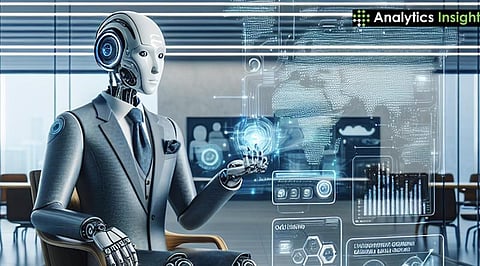

AI agents promise efficiency, accuracy, and personalisation across industries.
Challenges include bias, hallucinations, security risks, and job displacement.
Responsible deployment requires governance, transparency, and human oversight.
Artificial intelligence is no longer limited to chatbots responding to basic questions. Autonomous AIs that are capable of self-planning, self-executing, and self-adapting, and require minimal supervision, are the future.
The possibilities for improving productivity with such systems are incredible, from automating simple office chores to managing intricate datasets. However, before using these machines at scale, it is important to consider the benefits and risks of AI Agents.
AI agents are primarily advantageous from a productivity perspective, as they facilitate the completion of tasks in a shorter span. They mitigate the need for people to do creative and strategic work by taking over routine tasks such as scheduling, data entry, and customer support. This benefits the companies in terms of expenses, time, and accuracy.
Additionally, AI agents improve the scalability of operations. Unlike their human counterparts, they work around the clock. AI agents enhance service quality in the retail and banking sectors while reducing operational costs.
Additionally, guidance is advantageous in decision-making. With AI's capacity to analyze vast amounts of data at the snap of a finger, actionable insights become readily available. Such insights improve the quality of managerial decisions tremendously. The range of impact is extensive, including predicting sales trends to bringing anomalies in financial transactions to light.
By interpreting and analyzing information on users, AI systems can provide tailored assistance and suggestions. This may take the form of suggesting a specific item to buy in e-commerce or adjusting lesson plans in education. Such AI systems prove to be useful in healthcare.
For instance, these agents can analyze patient information, flag any visitors who pose a risk, and suggest therapy plans to follow. The level of customization enables the system to function more responsively and efficiently.
With autonomy comes complexity. The most significant challenge of AI agents is reliability. These agents tend to ‘hallucinate,’ or produce defective information. As tasks are concatenated, minor errors can accumulate and cause massive failures. Companies relying solely on these agents jeopardize accuracy.
Another concern is bias. Since AI agents learn from historical data, the inequalities of the past are likely to continue, and even get worse. This poses ethical problems concerning fairness, especially in critical areas like recruitment and lending.
There is a significant lack of transparency. Most AI agents function as ‘black boxes,’ making it difficult to justify their particular outputs. This substantially decreases accountability in sectors dealing with high-risk healthcare, law enforcement, and financial regulation.
Also Read: What are the Types of AI Agents?
Security is a critical weakness. Since agents gain access to sensitive systems and data, they can be used for cyberattacks if not protected effectively. Researchers have identified concerns such as data breaches, privilege escalation, and automated phishing.
There’s also the danger of ‘prompt injection,’ whereby illegal commands mislead an AI agent into carrying out unauthorized actions. Such loopholes could be catastrophic in industries like banking or defence.
Similar to other types of automation, AI agents are two-sided. On the one hand, they minimize human work and allow individuals to specialize in higher-value tasks. On the other hand, they put some jobs at risk, mainly customer service, data entry, or administrative support jobs.
Experts also caution against an over-reliance issue. Workers who rely too heavily on AI may lose their problem-solving and critical thinking abilities, leading to long-term dependence. The labor force will require ongoing reskilling to remain helpful.
Also Read: What is the Difference Between Agentic and Non-Agentic AI Chatbots?
Not exactly. Regimes of law for AI agents continue to develop. Issues of liability, such as whose fault it is if an AI agent errs and incurs a costly mistake, have yet to be settled. Without definite rules, companies are subject to regulatory uncertainty, while customers potentially remain unprotected.
Mechanisms like human-in-the-loop review, bias auditing, and AI interpretability are being piloted. However, international agreements on ethics and legal norms are far off.
AI agents have the potential to do a great deal of good for us, improving how we work and how productive we are, personalizing our experiences, and inspiring innovation.
However, AI agents present challenges alongside opportunities, and those must be weighed alongside one another. Clear design, strong safety, and proper regulations will be critical to avoid greater risks while unlocking the benefits.
This indicates that AI agents should be approached as teammates rather than direct substitutes. Achieving the intended objectives will depend on improving efficiency, innovation, safety, and accountability.
1. What exactly are AI agents?
AI agents are autonomous systems that can plan, decide, and act on tasks with minimal human input. Unlike simple chatbots, they can chain multiple steps together to complete complex goals.
2. What are the key benefits of AI agents?
The benefits of AI agents include higher efficiency, 24/7 availability, data-driven decision-making, personalisation, and cost savings. They free humans from repetitive work and improve accuracy.
3. What challenges of AI agents should businesses watch out for?
The challenges of AI agents include hallucinations (incorrect outputs), bias in decision-making, lack of transparency, security risks, and regulatory uncertainty.
4. Will AI agents replace human jobs?
Some routine roles in customer service or administration may shrink, but AI agents also create opportunities for reskilling and new types of jobs. They are more likely to complement human work than fully replace it—at least in the near future.
5. How can organisations deploy AI agents responsibly?
By keeping humans in the loop, strengthening cybersecurity, conducting bias audits, and adopting explainable AI practices. Regulation and ethical frameworks will also play a crucial role.
